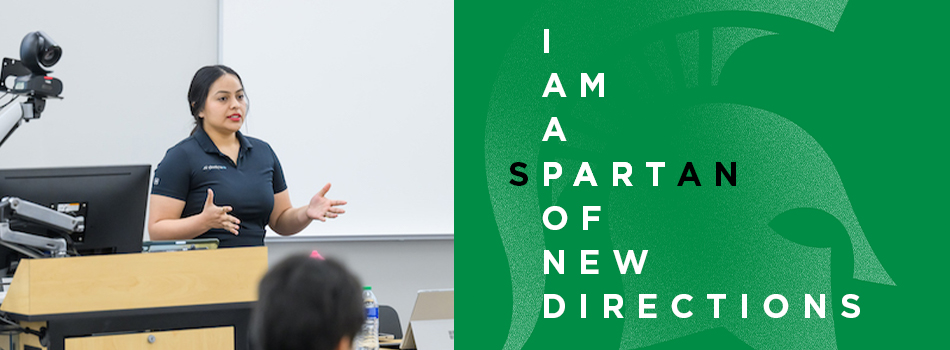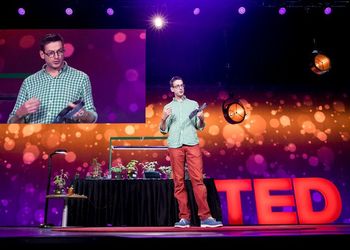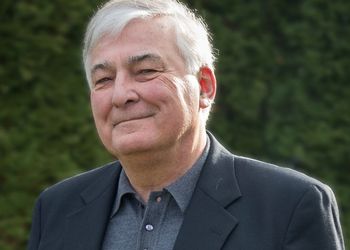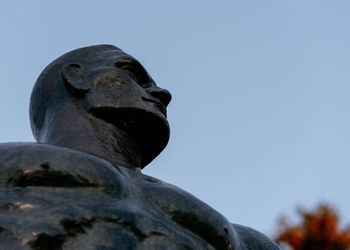Picking Her Place
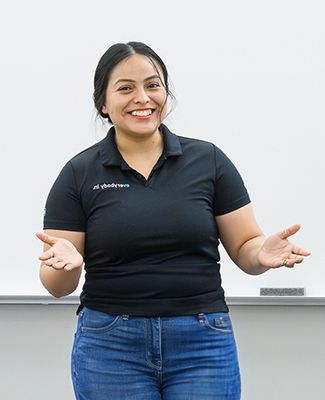
Picking Her Place
Dayana Villagran: A Spartan of New Directions
May 19, 2024With the sun creeping over the Michigan landscape, Dayana Villagran remembers climbing a ladder to pick apples. The work familiar. The field anonymous.
Sunrise to sunset.
Seven days a week.
As autumn advanced and the weather turned more brutish and bitter, Villagran’s fingers often froze as she tugged on one cold apple after another. In those moments, she followed her father’s guidance and smacked her hands on the ladder—a crude, yet effective remedy when the objective is to collect as many apples as possible.
“You feel instant pain, but it kind of numbs your hands to the point where you can’t feel anything,” Villagran said.
Such work shaped Villagran, the daughter of Mexican-born migrant workers who spent winters, springs and early summers in Florida picking oranges, tomatoes, watermelon, eggplant and other produce before following seasonal crops northward and landing in Michigan each fall.
The sixth of nine children, Villagran understood the practical purpose of the work, but envisioned a different long-term reality for herself and her family.
“I just knew I had to go to college,” Villagran said. “I was always told education is power and you can make a difference and be heard when you’re educated.”
Villagran arrived at Michigan State in 2017 as an MSU College Assistance Migrant Program (CAMP) Scholar, a longstanding residential program designed to help migrant and seasonal farmworker students transition to college life. CAMP provided Villagran with an immediate support system and community as she adjusted to unfamiliar terrain.
Beyond CAMP, Villagran found additional support and mentorship through the Cornerstone Engineering and Residential Experience (CoRe), Supporting Excellent Engineers and Women in Engineering. Those thoughtful initiatives combined with Villagran’s determined and diligent spirit propelled her to a degree in mechanical engineering, a major she chose because of the discipline’s problem-solving energy and its professional prospects.
“Every time I wanted to give up, I’d recall moments in the burning heat of Florida or numbing cold in Michigan and reminded myself failure wasn’t an option,” Villagran said.
After three separate summer internships with General Motors, Villagran began working as a full-time mechanical engineer in the automotive giant’s body shop in January 2022. She continues serving as the shop’s subject matter expert on conveyers, overseeing new installations and upgrades to ensure efficient operations. The work is varied and the opportunity at a large, established company is enticing.
“Someday, I hope to hold a leadership position and have some impact on a global scale within the company,” Villagran said.
“Remembering the things I went through drives me still. It was a tough road to get here, but I know what hard work and focus can create.”
Her journey from migrant work to Big Ten engineering graduate to General Motors is an inspiring tale, and one Villagran has shared with members of CoRe as well as General Motors Latino Network.
“I know there are others like me questioning what they can accomplish,” Villagran said. “I hope I can show them what’s possible with a strong work ethic and dedication.”
Laboring in the field, Villagran didn’t think much about her surroundings or the bigger picture. She slammed her hands against the ladder because survival required movement.
MSU, however, showed Villagran a clear path to social mobility and empowered personal growth. Her perseverance, meanwhile, unlocked the stability she craved.
“Remembering the things I went through drives me still,” Villagran said. “It was a tough road to get here, but I know what hard work and focus can create.”
Contributing Writer(s): Daniel P. Smith


